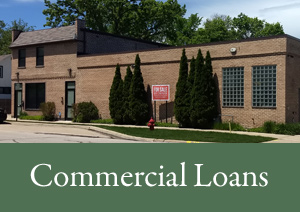Category: Uncategorized

Do you still have a Home Equity Line of Credit(heloc)? A few years ago they came in handy if you wanted to get some cash out of your home for anything you wanted. Almost all of them had 10 year terms of interest only payments. Yours may already have adjusted so that you’re not only paying principal and interest but the payment is also based on the remaining term (probably 20 years). Your payments will go up every year. Even if you have a year or two left before it adjusts, now is the time to call me to explore your options.
The Federal Reserve is planning on 3 more rate increases this year. Fed Fund rates have a direct effect on the prime rate and equity lines of credit. Since long term rates of 15, 20, or 30 years are still low, call me to see if it’s possible to put your 1st and 2nd loans together at little or no cost. Office: (847) 441-4116; Cell: (312) 502-0119
- ilm_is_inbound_links_added: 1
- ilm_sync_report3: 1
- ilm_links_inbound_internal_count: 10
- ilm_links_inbound_internal_count_data: a:10:{i:0;O:14:"Ilm_Model_Link":9:{s:7:"link_id";i:0;s:3:"url";s:65:"https://1steaglemortgage.com/time-say-goodbye-equity-line-credit/";s:4:"host";s:20:"1steaglemortgage.com";s:8:"internal";b:1;s:4:"post";O:14:"Ilm_Model_Post":11:{s:2:"id";s:2:"92";s:5:"title";N;s:4:"type";s:4:"post";s:6:"status";N;s:7:"content";N;s:5:"links";N;s:4:"slug";N;s:6:"clicks";N;s:8:"position";N;s:15:"page_importance";s:0:"";s:9:"itemOrder";i:0;}s:6:"anchor";s:22:"equity loan and credit";s:15:"added_by_plugin";b:0;s:8:"location";s:7:"content";s:9:"link_mark";s:0:"";}i:1;O:14:"Ilm_Model_Link":9:{s:7:"link_id";i:0;s:3:"url";s:65:"https://1steaglemortgage.com/time-say-goodbye-equity-line-credit/";s:4:"host";s:20:"1steaglemortgage.com";s:8:"internal";b:1;s:4:"post";O:14:"Ilm_Model_Post":11:{s:2:"id";s:3:"165";s:5:"title";N;s:4:"type";s:4:"post";s:6:"status";N;s:7:"content";N;s:5:"links";N;s:4:"slug";N;s:6:"clicks";N;s:8:"position";N;s:15:"page_importance";s:0:"";s:9:"itemOrder";i:0;}s:6:"anchor";s:43:"time of great financial hardship and credit";s:15:"added_by_plugin";b:0;s:8:"location";s:7:"content";s:9:"link_mark";s:0:"";}i:2;O:14:"Ilm_Model_Link":9:{s:7:"link_id";i:0;s:3:"url";s:65:"https://1steaglemortgage.com/time-say-goodbye-equity-line-credit/";s:4:"host";s:20:"1steaglemortgage.com";s:8:"internal";b:1;s:4:"post";O:14:"Ilm_Model_Post":11:{s:2:"id";s:3:"277";s:5:"title";N;s:4:"type";s:4:"post";s:6:"status";N;s:7:"content";N;s:5:"links";N;s:4:"slug";N;s:6:"clicks";N;s:8:"position";N;s:15:"page_importance";s:0:"";s:9:"itemOrder";i:0;}s:6:"anchor";s:14:"line of credit";s:15:"added_by_plugin";b:0;s:8:"location";s:7:"content";s:9:"link_mark";s:0:"";}i:3;O:14:"Ilm_Model_Link":9:{s:7:"link_id";i:0;s:3:"url";s:65:"https://1steaglemortgage.com/time-say-goodbye-equity-line-credit/";s:4:"host";s:20:"1steaglemortgage.com";s:8:"internal";b:1;s:4:"post";O:14:"Ilm_Model_Post":11:{s:2:"id";s:3:"752";s:5:"title";N;s:4:"type";s:4:"post";s:6:"status";N;s:7:"content";N;s:5:"links";N;s:4:"slug";N;s:6:"clicks";N;s:8:"position";N;s:15:"page_importance";s:0:"";s:9:"itemOrder";i:0;}s:6:"anchor";s:11:"credit line";s:15:"added_by_plugin";b:0;s:8:"location";s:7:"content";s:9:"link_mark";s:0:"";}i:4;O:14:"Ilm_Model_Link":9:{s:7:"link_id";i:0;s:3:"url";s:65:"https://1steaglemortgage.com/time-say-goodbye-equity-line-credit/";s:4:"host";s:20:"1steaglemortgage.com";s:8:"internal";b:1;s:4:"post";O:14:"Ilm_Model_Post":11:{s:2:"id";s:3:"801";s:5:"title";N;s:4:"type";s:4:"post";s:6:"status";N;s:7:"content";N;s:5:"links";N;s:4:"slug";N;s:6:"clicks";N;s:8:"position";N;s:15:"page_importance";s:0:"";s:9:"itemOrder";i:0;}s:6:"anchor";s:32:"credit score and home’s equity";s:15:"added_by_plugin";b:0;s:8:"location";s:7:"content";s:9:"link_mark";s:0:"";}i:5;O:14:"Ilm_Model_Link":9:{s:7:"link_id";i:0;s:3:"url";s:65:"https://1steaglemortgage.com/time-say-goodbye-equity-line-credit/";s:4:"host";s:20:"1steaglemortgage.com";s:8:"internal";b:1;s:4:"post";O:14:"Ilm_Model_Post":11:{s:2:"id";s:3:"808";s:5:"title";N;s:4:"type";s:4:"post";s:6:"status";N;s:7:"content";N;s:5:"links";N;s:4:"slug";N;s:6:"clicks";N;s:8:"position";N;s:15:"page_importance";s:0:"";s:9:"itemOrder";i:0;}s:6:"anchor";s:14:"line of credit";s:15:"added_by_plugin";b:0;s:8:"location";s:7:"content";s:9:"link_mark";s:0:"";}i:6;O:14:"Ilm_Model_Link":9:{s:7:"link_id";i:0;s:3:"url";s:65:"https://1steaglemortgage.com/time-say-goodbye-equity-line-credit/";s:4:"host";s:20:"1steaglemortgage.com";s:8:"internal";b:1;s:4:"post";O:14:"Ilm_Model_Post":11:{s:2:"id";s:3:"816";s:5:"title";N;s:4:"type";s:4:"post";s:6:"status";N;s:7:"content";N;s:5:"links";N;s:4:"slug";N;s:6:"clicks";N;s:8:"position";N;s:15:"page_importance";s:0:"";s:9:"itemOrder";i:0;}s:6:"anchor";s:14:"line of credit";s:15:"added_by_plugin";b:0;s:8:"location";s:7:"content";s:9:"link_mark";s:0:"";}i:7;O:14:"Ilm_Model_Link":9:{s:7:"link_id";i:0;s:3:"url";s:65:"https://1steaglemortgage.com/time-say-goodbye-equity-line-credit/";s:4:"host";s:20:"1steaglemortgage.com";s:8:"internal";b:1;s:4:"post";O:14:"Ilm_Model_Post":11:{s:2:"id";s:3:"841";s:5:"title";N;s:4:"type";s:4:"post";s:6:"status";N;s:7:"content";N;s:5:"links";N;s:4:"slug";N;s:6:"clicks";N;s:8:"position";N;s:15:"page_importance";s:0:"";s:9:"itemOrder";i:0;}s:6:"anchor";s:14:"line of credit";s:15:"added_by_plugin";b:0;s:8:"location";s:7:"content";s:9:"link_mark";s:0:"";}i:8;O:14:"Ilm_Model_Link":9:{s:7:"link_id";i:0;s:3:"url";s:65:"https://1steaglemortgage.com/time-say-goodbye-equity-line-credit/";s:4:"host";s:20:"1steaglemortgage.com";s:8:"internal";b:1;s:4:"post";O:14:"Ilm_Model_Post":11:{s:2:"id";s:3:"887";s:5:"title";N;s:4:"type";s:4:"post";s:6:"status";N;s:7:"content";N;s:5:"links";N;s:4:"slug";N;s:6:"clicks";N;s:8:"position";N;s:15:"page_importance";s:0:"";s:9:"itemOrder";i:0;}s:6:"anchor";s:32:"equity in your home and a credit";s:15:"added_by_plugin";b:0;s:8:"location";s:7:"content";s:9:"link_mark";s:0:"";}i:9;O:14:"Ilm_Model_Link":9:{s:7:"link_id";i:0;s:3:"url";s:65:"https://1steaglemortgage.com/time-say-goodbye-equity-line-credit/";s:4:"host";s:20:"1steaglemortgage.com";s:8:"internal";b:1;s:4:"post";O:14:"Ilm_Model_Post":11:{s:2:"id";s:3:"907";s:5:"title";N;s:4:"type";s:4:"post";s:6:"status";N;s:7:"content";N;s:5:"links";N;s:4:"slug";N;s:6:"clicks";N;s:8:"position";N;s:15:"page_importance";s:0:"";s:9:"itemOrder";i:0;}s:6:"anchor";s:60:"equity loans typically have lower interest rates than credit";s:15:"added_by_plugin";b:0;s:8:"location";s:7:"content";s:9:"link_mark";s:0:"";}}
- ilm_links_outbound_internal_count: 0
- ilm_links_outbound_internal_count_data: a:0:{}
- ilm_links_outbound_external_count: 0
- ilm_links_outbound_external_count_data: a:0:{}
- ilm_sync_report2_time: 2023-11-14T18:02:43+00:00
February 5th, 2018 by Herb Levin

- If you must buy a car, focus on transportation as opposed to style. Buy an inexpensive, used car, and try to get a loan for it. It’s a good idea to figure out what your budget allows in terms of a dollar amount first. This means obtaining financing prior to looking for a car.
- Get a secured credit card. Secured credit cards allow for the cardholder to deposit a said amount of money into an account, thus establishing the spending limit of the card. Missed payments result in deductions from the account. Some of these cards will reward responsible borrowers by upping the limit without an additional deposit. Some will even convert the account into a traditional credit card (be wary of offers of “easy credit” or any card which asks you to call a 900 number-you will be charged for the call). I can recommend several banks.
- Meet with a credit repair specialist or myself. While they can help you clean up the damage to your credit report, I can advise you on specific ways to rebuild the credit you lost as well.
- While it does take time, there is definitely life (and credit) after bankruptcy. Some of my lenders will even lend to you within a year or so after a bankruptcy with extenuating circumstances. If you’re in serious financial trouble, the trick is to get the help and advice you need from professionals you trust.
- ilm_is_inbound_links_added: 1
- ilm_sync_report3: 1
- ilm_links_inbound_internal_count: 1
- ilm_links_inbound_internal_count_data: a:1:{i:0;O:14:"Ilm_Model_Link":9:{s:7:"link_id";i:0;s:3:"url";s:66:"https://1steaglemortgage.com/rebuilding-credit-after-bankruptcy-2/";s:4:"host";s:20:"1steaglemortgage.com";s:8:"internal";b:1;s:4:"post";O:14:"Ilm_Model_Post":11:{s:2:"id";s:3:"179";s:5:"title";N;s:4:"type";s:4:"post";s:6:"status";N;s:7:"content";N;s:5:"links";N;s:4:"slug";N;s:6:"clicks";N;s:8:"position";N;s:15:"page_importance";s:0:"";s:9:"itemOrder";i:0;}s:6:"anchor";s:142:"bankruptcy is the only option, seek out a reputable bankruptcy attorney and credit";s:15:"added_by_plugin";b:0;s:8:"location";s:7:"content";s:9:"link_mark";s:0:"";}}
- ilm_links_outbound_internal_count: 2
- ilm_links_outbound_internal_count_data: a:2:{i:0;O:14:"Ilm_Model_Link":9:{s:7:"link_id";s:3:"134";s:3:"url";s:64:"https://1steaglemortgage.com/rebuilding-credit-after-bankruptcy/";s:4:"host";s:20:"1steaglemortgage.com";s:8:"internal";b:1;s:4:"post";O:14:"Ilm_Model_Post":11:{s:2:"id";i:175;s:5:"title";N;s:4:"type";s:4:"post";s:6:"status";N;s:7:"content";N;s:5:"links";N;s:4:"slug";N;s:6:"clicks";N;s:8:"position";N;s:15:"page_importance";s:0:"";s:9:"itemOrder";i:0;}s:6:"anchor";s:18:"rebuild the credit";s:15:"added_by_plugin";b:0;s:8:"location";s:7:"content";s:9:"link_mark";s:0:"";}i:1;O:14:"Ilm_Model_Link":9:{s:7:"link_id";s:3:"135";s:3:"url";s:75:"https://1steaglemortgage.com/vital-strategies-for-homeowners-in-bankruptcy/";s:4:"host";s:20:"1steaglemortgage.com";s:8:"internal";b:1;s:4:"post";O:14:"Ilm_Model_Post":11:{s:2:"id";i:177;s:5:"title";N;s:4:"type";s:4:"post";s:6:"status";N;s:7:"content";N;s:5:"links";N;s:4:"slug";N;s:6:"clicks";N;s:8:"position";N;s:15:"page_importance";s:0:"";s:9:"itemOrder";i:0;}s:6:"anchor";s:10:"bankruptcy";s:15:"added_by_plugin";b:0;s:8:"location";s:7:"content";s:9:"link_mark";s:0:"";}}
- ilm_links_outbound_external_count: 0
- ilm_links_outbound_external_count_data: a:0:{}
- ilm_sync_report2_time: 2023-11-14T18:02:43+00:00
September 3rd, 2017 by Herb Levin

Several studies have already demonstrated the potential benefits to be reaped when using a reverse mortgage as part of a coordinated retirement strategy, but one recent case study further expounds on the efficacy of the reverse mortgage line of credit.
With the arrival of new program changes and consumer protections in recent years, the reverse mortgage industry has strived to assert the legitimacy of the Home Equity Conversion Mortgage (HECM) as a viable retirement income planning tool.
A variety of financial planning research published within the last decade has added layers of credibility to reverse mortgages as a financial resource that can help “buffer” against volatility in investment markets, increase retirement spending and, above all, significantly improve the longevity of a retiree’s retirement income.
The crux of these strategies invariably requires retirees to obtain a reverse mortgage line of credit early in retirement. By doing so, retirees can accumulate a greater share of home equity over time, which they can use to supplement their retirement spending and help shore up losses in their investment portfolio during years of negative market returns. (To continue reading this article, authored by Jason Oliva, use the link below).
Here is an article
- ilm_is_inbound_links_added: 1
- ilm_sync_report3: 1
- ilm_links_inbound_internal_count: 1
- ilm_links_inbound_internal_count_data: a:1:{i:0;O:14:"Ilm_Model_Link":9:{s:7:"link_id";i:0;s:3:"url";s:97:"https://1steaglemortgage.com/study-makes-case-for-1-million-reverse-mortgage-retirement-strategy/";s:4:"host";s:20:"1steaglemortgage.com";s:8:"internal";b:1;s:4:"post";O:14:"Ilm_Model_Post":11:{s:2:"id";s:3:"848";s:5:"title";N;s:4:"type";s:4:"post";s:6:"status";N;s:7:"content";N;s:5:"links";N;s:4:"slug";N;s:6:"clicks";N;s:8:"position";N;s:15:"page_importance";s:0:"";s:9:"itemOrder";i:0;}s:6:"anchor";s:22:"mortgage and a reverse";s:15:"added_by_plugin";b:0;s:8:"location";s:7:"content";s:9:"link_mark";s:0:"";}}
- ilm_links_outbound_internal_count: 1
- ilm_links_outbound_internal_count_data: a:1:{i:0;O:14:"Ilm_Model_Link":9:{s:7:"link_id";s:3:"132";s:3:"url";s:65:"https://1steaglemortgage.com/time-say-goodbye-equity-line-credit/";s:4:"host";s:20:"1steaglemortgage.com";s:8:"internal";b:1;s:4:"post";O:14:"Ilm_Model_Post":11:{s:2:"id";i:378;s:5:"title";N;s:4:"type";s:4:"post";s:6:"status";N;s:7:"content";N;s:5:"links";N;s:4:"slug";N;s:6:"clicks";N;s:8:"position";N;s:15:"page_importance";s:0:"";s:9:"itemOrder";i:0;}s:6:"anchor";s:14:"line of credit";s:15:"added_by_plugin";b:0;s:8:"location";s:7:"content";s:9:"link_mark";s:0:"";}}
- ilm_links_outbound_external_count: 1
- ilm_links_outbound_external_count_data: a:1:{i:0;O:14:"Ilm_Model_Link":9:{s:7:"link_id";s:3:"133";s:3:"url";s:112:"https://reversemortgagedaily.com/2016/08/23/study-makes-case-for-1-million-reverse-mortgage-retirement-strategy/";s:4:"host";s:24:"reversemortgagedaily.com";s:8:"internal";b:0;s:4:"post";N;s:6:"anchor";s:24:"Here is an article ";s:15:"added_by_plugin";b:0;s:8:"location";s:7:"content";s:9:"link_mark";s:0:"";}}
- ilm_sync_report2_time: 2023-11-14T18:02:43+00:00
September 3rd, 2017 by Herb Levin

About one-third of American baby boomers risk damaging their credit scores in retirement by reducing or eliminating their use of credit cards, according to a survey by TransUnion, one of the three credit bureaus that gather information used to calculate the scores. Using credit cards for small purchases keeps your credit active. That can help ensure you’ll have available credit–or good credit scores–when it counts. Using credit cards for small purchases keeps your credit active.
For example, an older adult wished to buy a new car. She was turned down for a loan with a low interest rate simply because no credit card purchases had been made for many years; she preferred to pay with cash or her debit card. That had hurt her credit scores, preventing her from getting a deal that worked for her.
TransUnion consumer data show that 20 percent of people ages 51 and 70 have subprime credit, or a score of less than 600. Your retirement plan might appear bulletproof, but circumstances easily change–and if they do, it’s nice to know you can lean on your credit.
- ilm_is_inbound_links_added: 1
- ilm_sync_report3: 1
- ilm_links_inbound_internal_count: 3
- ilm_links_inbound_internal_count_data: a:3:{i:0;O:14:"Ilm_Model_Link":9:{s:7:"link_id";i:0;s:3:"url";s:71:"https://1steaglemortgage.com/why-credit-cards-shouldnt-retire-with-you/";s:4:"host";s:20:"1steaglemortgage.com";s:8:"internal";b:1;s:4:"post";O:14:"Ilm_Model_Post":11:{s:2:"id";s:3:"907";s:5:"title";N;s:4:"type";s:4:"post";s:6:"status";N;s:7:"content";N;s:5:"links";N;s:4:"slug";N;s:6:"clicks";N;s:8:"position";N;s:15:"page_importance";s:0:"";s:9:"itemOrder";i:0;}s:6:"anchor";s:11:"credit card";s:15:"added_by_plugin";b:0;s:8:"location";s:7:"content";s:9:"link_mark";s:0:"";}i:1;O:14:"Ilm_Model_Link":9:{s:7:"link_id";i:0;s:3:"url";s:71:"https://1steaglemortgage.com/why-credit-cards-shouldnt-retire-with-you/";s:4:"host";s:20:"1steaglemortgage.com";s:8:"internal";b:1;s:4:"post";O:14:"Ilm_Model_Post":11:{s:2:"id";s:4:"1050";s:5:"title";N;s:4:"type";s:4:"post";s:6:"status";N;s:7:"content";N;s:5:"links";N;s:4:"slug";N;s:6:"clicks";N;s:8:"position";N;s:15:"page_importance";s:0:"";s:9:"itemOrder";i:0;}s:6:"anchor";s:12:"credit cards";s:15:"added_by_plugin";b:0;s:8:"location";s:7:"content";s:9:"link_mark";s:0:"";}i:2;O:14:"Ilm_Model_Link":9:{s:7:"link_id";i:0;s:3:"url";s:71:"https://1steaglemortgage.com/why-credit-cards-shouldnt-retire-with-you/";s:4:"host";s:20:"1steaglemortgage.com";s:8:"internal";b:1;s:4:"post";O:14:"Ilm_Model_Post":11:{s:2:"id";s:4:"1042";s:5:"title";N;s:4:"type";s:4:"post";s:6:"status";N;s:7:"content";N;s:5:"links";N;s:4:"slug";N;s:6:"clicks";N;s:8:"position";N;s:15:"page_importance";s:0:"";s:9:"itemOrder";i:0;}s:6:"anchor";s:11:"credit card";s:15:"added_by_plugin";b:0;s:8:"location";s:7:"content";s:9:"link_mark";s:0:"";}}
- ilm_links_outbound_internal_count: 0
- ilm_links_outbound_internal_count_data: a:0:{}
- ilm_links_outbound_external_count: 0
- ilm_links_outbound_external_count_data: a:0:{}
- ilm_sync_report2_time: 2023-11-14T18:02:44+00:00
August 3rd, 2017 by Herb Levin

Many couples who separate later(seniors 62 years of age or older) find themselves unable to support the costs of a home once supported by two partners now that they are independently responsible.
Here’s where a reverse mortgage can come into play…
The loan allows for the homeowner(s) to choose how to withdraw the equity in the home, whether as a lump sum, a series of ongoing payments or a combination.
If one spouse prefers to remain in the home but cannot meet the monthly mortgage payments, a reverse mortgage can be used to pay off the mortgage, with any remaining proceeds going to the moving spouse. If neither spouse wishes to remain in the home, a Reverse Mortgage Purchase loan allows a homeowner to purchase a new home while taking out a reverse mortgage in a single transaction.
In the same way a standard reverse mortgage can allow one spouse to move to a new home through the reverse mortgage while the other can assume some of the remaining cash proceeds. This might work particularly well in the case where the borrower is downsizing.
- ilm_is_inbound_links_added: 1
- ilm_sync_report3: 1
- ilm_links_inbound_internal_count: 1
- ilm_links_inbound_internal_count_data: a:1:{i:0;O:14:"Ilm_Model_Link":9:{s:7:"link_id";i:0;s:3:"url";s:91:"https://1steaglemortgage.com/a-reverse-mortgage-can-be-helpful-when-seniors-seek-a-divorce/";s:4:"host";s:20:"1steaglemortgage.com";s:8:"internal";b:1;s:4:"post";O:14:"Ilm_Model_Post":11:{s:2:"id";s:3:"841";s:5:"title";N;s:4:"type";s:4:"post";s:6:"status";N;s:7:"content";N;s:5:"links";N;s:4:"slug";N;s:6:"clicks";N;s:8:"position";N;s:15:"page_importance";s:0:"";s:9:"itemOrder";i:0;}s:6:"anchor";s:17:"reverse mortgages";s:15:"added_by_plugin";b:0;s:8:"location";s:7:"content";s:9:"link_mark";s:0:"";}}
- ilm_links_outbound_internal_count: 0
- ilm_links_outbound_internal_count_data: a:0:{}
- ilm_links_outbound_external_count: 0
- ilm_links_outbound_external_count_data: a:0:{}
- ilm_sync_report2_time: 2023-11-14T18:02:44+00:00
July 25th, 2017 by Herb Levin

New Home Sales blossomed in March reaching their highest level in nearly a year, the Commerce Department reported. Sales were up 5.8 percent from February and nearly 16 percent from a year ago. New home inventories edged lower to a 5.2-month supply in March. A six-month supply is considered “normal” inventory.
Existing Home Sales hit their highest pace in over 10 years in March, according to the National Association of Realtors, with sales climbing 4.4 percent from February and 5.9 percent above a year ago. However, existing home demand continues to outweigh supply with inventories down 6.6 percent from the same time last year.
New home construction didn’t fare as well. Inclement weather during March in the Midwest and Northeast chilled residential home construction after unseasonably warm weather in February. March Housing Start numbers fell nearly 7 percent from February, per the Commerce Department. The year-over-year picture was still rosy, however, with Housing Starts up 9 percent from March 2016 to March 2017.
- ilm_is_inbound_links_added: 1
- ilm_sync_report3: 1
- ilm_links_inbound_internal_count: 1
- ilm_links_inbound_internal_count_data: a:1:{i:0;O:14:"Ilm_Model_Link":9:{s:7:"link_id";i:0;s:3:"url";s:49:"https://1steaglemortgage.com/home-sales-in-bloom/";s:4:"host";s:20:"1steaglemortgage.com";s:8:"internal";b:1;s:4:"post";O:14:"Ilm_Model_Post":11:{s:2:"id";s:3:"159";s:5:"title";N;s:4:"type";s:4:"post";s:6:"status";N;s:7:"content";N;s:5:"links";N;s:4:"slug";N;s:6:"clicks";N;s:8:"position";N;s:15:"page_importance";s:0:"";s:9:"itemOrder";i:0;}s:6:"anchor";s:10:"Home Sales";s:15:"added_by_plugin";b:0;s:8:"location";s:7:"content";s:9:"link_mark";s:0:"";}}
- ilm_links_outbound_internal_count: 0
- ilm_links_outbound_internal_count_data: a:0:{}
- ilm_links_outbound_external_count: 0
- ilm_links_outbound_external_count_data: a:0:{}
- ilm_sync_report2_time: 2023-11-14T18:02:44+00:00
July 25th, 2017 by Herb Levin

What is the New Home Sales report? The New Home Sales report shows the number of newly constructed homes with a committed sale each month. The level of sales indicates housing market trends and housing demand, while the supply serves as a clue to the level of housing pressure.
What’s happened recently? The Commerce Department reported that New Home Sales in May jumped nearly 3 percent from April to an annual rate of 610,000, above the 599,000 expected. Sales were up nearly 9 percent from May 2016, with May being the second highest month recorded for 2017.
What’s the bottom line? A tight inventory supply of just 4.6 months pushed the median new home sale price to a record high. It remains to be seen if builders can meet demand as lack of skilled labor, cost of building materials and limited buildable lots challenge construction.
- ilm_is_inbound_links_added: 1
- ilm_sync_report3: 1
- ilm_links_inbound_internal_count: 1
- ilm_links_inbound_internal_count_data: a:1:{i:0;O:14:"Ilm_Model_Link":9:{s:7:"link_id";i:0;s:3:"url";s:91:"https://1steaglemortgage.com/new-home-sales-surge-in-may-pushing-median-home-prices-higher/";s:4:"host";s:20:"1steaglemortgage.com";s:8:"internal";b:1;s:4:"post";O:14:"Ilm_Model_Post":11:{s:2:"id";s:3:"907";s:5:"title";N;s:4:"type";s:4:"post";s:6:"status";N;s:7:"content";N;s:5:"links";N;s:4:"slug";N;s:6:"clicks";N;s:8:"position";N;s:15:"page_importance";s:0:"";s:9:"itemOrder";i:0;}s:6:"anchor";s:22:"push you into a higher";s:15:"added_by_plugin";b:0;s:8:"location";s:7:"content";s:9:"link_mark";s:0:"";}}
- ilm_links_outbound_internal_count: 1
- ilm_links_outbound_internal_count_data: a:1:{i:0;O:14:"Ilm_Model_Link":9:{s:7:"link_id";s:3:"128";s:3:"url";s:49:"https://1steaglemortgage.com/home-sales-in-bloom/";s:4:"host";s:20:"1steaglemortgage.com";s:8:"internal";b:1;s:4:"post";O:14:"Ilm_Model_Post":11:{s:2:"id";i:161;s:5:"title";N;s:4:"type";s:4:"post";s:6:"status";N;s:7:"content";N;s:5:"links";N;s:4:"slug";N;s:6:"clicks";N;s:8:"position";N;s:15:"page_importance";s:0:"";s:9:"itemOrder";i:0;}s:6:"anchor";s:10:"Home Sales";s:15:"added_by_plugin";b:0;s:8:"location";s:7:"content";s:9:"link_mark";s:0:"";}}
- ilm_links_outbound_external_count: 0
- ilm_links_outbound_external_count_data: a:0:{}
- ilm_sync_report2_time: 2023-11-14T18:02:44+00:00
July 25th, 2017 by Herb Levin

A client wanted to buy the home he had been renting. With the credits I was able to arrange for him, the total amount he needed at the closing was $742 even though his credit was less than perfect.
A self-employed borrower wanted to buy the home she had been renting for a year. While her tax returns didn’t show enough income to be able to use a standard loan, a bank statement program worked perfectly for her. Her income was based on deposits in her personal bank account.
Call 847-441-4116, or email me at herb@1stEagleMortgage.com for more information about these loans that don’t require any income documentation.
- ilm_is_inbound_links_added: 1
- ilm_sync_report3: 1
- ilm_links_inbound_internal_count: 3
- ilm_links_inbound_internal_count_data: a:3:{i:0;O:14:"Ilm_Model_Link":9:{s:7:"link_id";i:0;s:3:"url";s:84:"https://1steaglemortgage.com/how-can-we-help-with-your-mortgage-here-are-2-examples/";s:4:"host";s:20:"1steaglemortgage.com";s:8:"internal";b:1;s:4:"post";O:14:"Ilm_Model_Post":11:{s:2:"id";s:3:"894";s:5:"title";N;s:4:"type";s:4:"post";s:6:"status";N;s:7:"content";N;s:5:"links";N;s:4:"slug";N;s:6:"clicks";N;s:8:"position";N;s:15:"page_importance";s:0:"";s:9:"itemOrder";i:0;}s:6:"anchor";s:16:"Mortgage brokers";s:15:"added_by_plugin";b:0;s:8:"location";s:7:"content";s:9:"link_mark";s:0:"";}i:1;O:14:"Ilm_Model_Link":9:{s:7:"link_id";i:0;s:3:"url";s:84:"https://1steaglemortgage.com/how-can-we-help-with-your-mortgage-here-are-2-examples/";s:4:"host";s:20:"1steaglemortgage.com";s:8:"internal";b:1;s:4:"post";O:14:"Ilm_Model_Post":11:{s:2:"id";s:4:"1033";s:5:"title";N;s:4:"type";s:4:"post";s:6:"status";N;s:7:"content";N;s:5:"links";N;s:4:"slug";N;s:6:"clicks";N;s:8:"position";N;s:15:"page_importance";s:0:"";s:9:"itemOrder";i:0;}s:6:"anchor";s:8:"mortgage";s:15:"added_by_plugin";b:0;s:8:"location";s:7:"content";s:9:"link_mark";s:0:"";}i:2;O:14:"Ilm_Model_Link":9:{s:7:"link_id";i:0;s:3:"url";s:84:"https://1steaglemortgage.com/how-can-we-help-with-your-mortgage-here-are-2-examples/";s:4:"host";s:20:"1steaglemortgage.com";s:8:"internal";b:1;s:4:"post";O:14:"Ilm_Model_Post":11:{s:2:"id";s:4:"1042";s:5:"title";N;s:4:"type";s:4:"post";s:6:"status";N;s:7:"content";N;s:5:"links";N;s:4:"slug";N;s:6:"clicks";N;s:8:"position";N;s:15:"page_importance";s:0:"";s:9:"itemOrder";i:0;}s:6:"anchor";s:8:"mortgage";s:15:"added_by_plugin";b:0;s:8:"location";s:7:"content";s:9:"link_mark";s:0:"";}}
- ilm_links_outbound_internal_count: 0
- ilm_links_outbound_internal_count_data: a:0:{}
- ilm_links_outbound_external_count: 0
- ilm_links_outbound_external_count_data: a:0:{}
- ilm_sync_report2_time: 2023-11-14T18:02:44+00:00
July 25th, 2017 by Herb Levin

During this difficult time, there are many questions you might be asking, including “Can I keep my house – what are my options?” Let’s break it down so you hopefully have one less thing to worry about!
If I am the one to receive the home in the settlement, does it make sense? Take into consideration home size, utilities, payments, family needs, etc. You will now be entirely responsible for the house payment, upkeep and other related bills. Your income will most likely be decreasing, so it is imperative that you be aware of what your expenses will be.
Will my spouse receive marital interest in the home? If so, the equity in the home needs to be determined by an appraiser. The appraised value – less the costs of selling (commissions and seller closing costs) equals equity to be split between the parties. This may be the amount you will be obligated to give to your ex-spouse.
With the divorce, your spouse may put a marital lien on the property or there may be a court-ordered mandate for distribution of the equity. This means that you have a specified amount of time to obtain the funds needed to give the ex-spouse their portion of the equity. This can be done by cashing out the equity in the home with a new mortgage or selling the home.
If you choose to stay in the home, you have two financing options to pay your ex-spouse. You can refinance your home to get cash out, or you can obtain a new home equity loan. This is where you will want the advice of a trusted mortgage professional.
There are specific rules to qualifying for a new mortgage. With good credit and income, you can quality on your own (child support and alimony can be counted if received for three months and likelihood of continuance for at least three years).
What if I am the one leaving the home? It is important to know that even though the divorce decree awarded the home to your spouse, you are still obligated for this debt in the eyes of the mortgage company!
Many people assume that by filing a quit claim deed removing themselves, they are no longer responsible for the mortgage. A quit claim eliminates your name from the title of the property, not the mortgage. The benefit of a quit claim deed is that if the one on title passes away, the property will go to their heirs rather than the ex-spouse.
How might it impact my credit – what can I do?Unfortunately for many, divorce is a time of great financial hardship and credit challenges. Because you are obligated on the mortgage until it is paid in full, it is imperative that the person responsible for the payment remains current. One possibility you have is to do a name delete assumption. If this is done as a none-qualifying assumption, the spouse not receiving the property can have their name removed from statements, but the financial obligation remains the same.
This process can also be used if you are staying in the property and changing back to your maiden name or a new married name. There is a way to do a qualifying name delete assumption that would relieve the non-occupying spouse from their obligation, but you would have to check with your mortgage servicing company for their procedure and fees.
What about if I want to go buy a home – am I still obligated because I am on the other loan? Once you have your final divorce decree, a lender will look at your income and credit to qualify you on your own. Again, in most situations, child support and alimony must have been received for three months and have at least a three year likelihood of continuance for this income to be used for qualifying. If the divorce decree states that you are not obligated for the mortgage and the mortgage on the home awarded to your ex-spouse has not been delinquent during the last 12 months, you may be able to qualify without this obligation.
Taking the time to talk to me before your divorce or before you decide to start looking at a new home can help eliminate many of the concerns and problems that surface in these situations. Choosing to work with a Trusted Advisor as a mortgage lender is crucial to your financial well-being, especially during this difficult time.
Take advantage of our FREE mortgage analysis and financial consultation. Let me help you with all your homeownership need. Call me at 847-441-4116.
- ilm_is_inbound_links_added: 1
- ilm_sync_report3: 1
- ilm_links_inbound_internal_count: 1
- ilm_links_inbound_internal_count_data: a:1:{i:0;O:14:"Ilm_Model_Link":9:{s:7:"link_id";i:0;s:3:"url";s:51:"https://1steaglemortgage.com/divorce-and-your-home/";s:4:"host";s:20:"1steaglemortgage.com";s:8:"internal";b:1;s:4:"post";O:14:"Ilm_Model_Post":11:{s:2:"id";s:3:"171";s:5:"title";N;s:4:"type";s:4:"post";s:6:"status";N;s:7:"content";N;s:5:"links";N;s:4:"slug";N;s:6:"clicks";N;s:8:"position";N;s:15:"page_importance";s:0:"";s:9:"itemOrder";i:0;}s:6:"anchor";s:16:"family feel safe";s:15:"added_by_plugin";b:0;s:8:"location";s:7:"content";s:9:"link_mark";s:0:"";}}
- ilm_links_outbound_internal_count: 1
- ilm_links_outbound_internal_count_data: a:1:{i:0;O:14:"Ilm_Model_Link":9:{s:7:"link_id";s:3:"126";s:3:"url";s:65:"https://1steaglemortgage.com/time-say-goodbye-equity-line-credit/";s:4:"host";s:20:"1steaglemortgage.com";s:8:"internal";b:1;s:4:"post";O:14:"Ilm_Model_Post":11:{s:2:"id";i:378;s:5:"title";N;s:4:"type";s:4:"post";s:6:"status";N;s:7:"content";N;s:5:"links";N;s:4:"slug";N;s:6:"clicks";N;s:8:"position";N;s:15:"page_importance";s:0:"";s:9:"itemOrder";i:0;}s:6:"anchor";s:43:"time of great financial hardship and credit";s:15:"added_by_plugin";b:0;s:8:"location";s:7:"content";s:9:"link_mark";s:0:"";}}
- ilm_links_outbound_external_count: 0
- ilm_links_outbound_external_count_data: a:0:{}
- ilm_sync_report2_time: 2023-11-14T18:02:44+00:00
March 3rd, 2017 by Herb Levin

Are there really “No Cost” mortgage loans?
While some banks advertise that their loans are no cost to you, actual fixed costs which are roughly $2,000 are “buried” in the higher rate that you’re charged.
Fixed costs are those for the appraisal, lender underwriting fee, and title charges. These are part of EVERY loan regardless of the advertisement or bank. Very roughly, there’s a 5 to 6 year payback for these No Cost loans. The higher monthly mortgage payment will total these fixed costs in 5 or 6 years.
Why would you want a No Cost loan? If you’re short of cash at the closing, or if you’re planning on moving in less than 7 years, this loan would make sense. Otherwise you’re better off with the lower rate especially since rates are trending upwards.
For specific numbers for your own loan, call me at 847-441-4116 or email me at herb@1steaglemortgage.lowcosttest.com.
- ilm_is_inbound_links_added: 1
- ilm_sync_report3: 1
- ilm_links_inbound_internal_count: 2
- ilm_links_inbound_internal_count_data: a:2:{i:0;O:14:"Ilm_Model_Link":9:{s:7:"link_id";i:0;s:3:"url";s:68:"https://1steaglemortgage.com/no-cost-mortgage-loans-fact-or-fiction/";s:4:"host";s:20:"1steaglemortgage.com";s:8:"internal";b:1;s:4:"post";O:14:"Ilm_Model_Post":11:{s:2:"id";s:3:"907";s:5:"title";N;s:4:"type";s:4:"post";s:6:"status";N;s:7:"content";N;s:5:"links";N;s:4:"slug";N;s:6:"clicks";N;s:8:"position";N;s:15:"page_importance";s:0:"";s:9:"itemOrder";i:0;}s:6:"anchor";s:22:"loans is closing costs";s:15:"added_by_plugin";b:0;s:8:"location";s:7:"content";s:9:"link_mark";s:0:"";}i:1;O:14:"Ilm_Model_Link":9:{s:7:"link_id";i:0;s:3:"url";s:68:"https://1steaglemortgage.com/no-cost-mortgage-loans-fact-or-fiction/";s:4:"host";s:20:"1steaglemortgage.com";s:8:"internal";b:1;s:4:"post";O:14:"Ilm_Model_Post":11:{s:2:"id";s:4:"1050";s:5:"title";N;s:4:"type";s:4:"post";s:6:"status";N;s:7:"content";N;s:5:"links";N;s:4:"slug";N;s:6:"clicks";N;s:8:"position";N;s:15:"page_importance";s:0:"";s:9:"itemOrder";i:0;}s:6:"anchor";s:30:"costs associated with the loan";s:15:"added_by_plugin";b:0;s:8:"location";s:7:"content";s:9:"link_mark";s:0:"";}}
- ilm_links_outbound_internal_count: 0
- ilm_links_outbound_internal_count_data: a:0:{}
- ilm_links_outbound_external_count: 0
- ilm_links_outbound_external_count_data: a:0:{}
- ilm_sync_report2_time: 2023-11-14T18:02:44+00:00
February 24th, 2017 by Herb Levin















